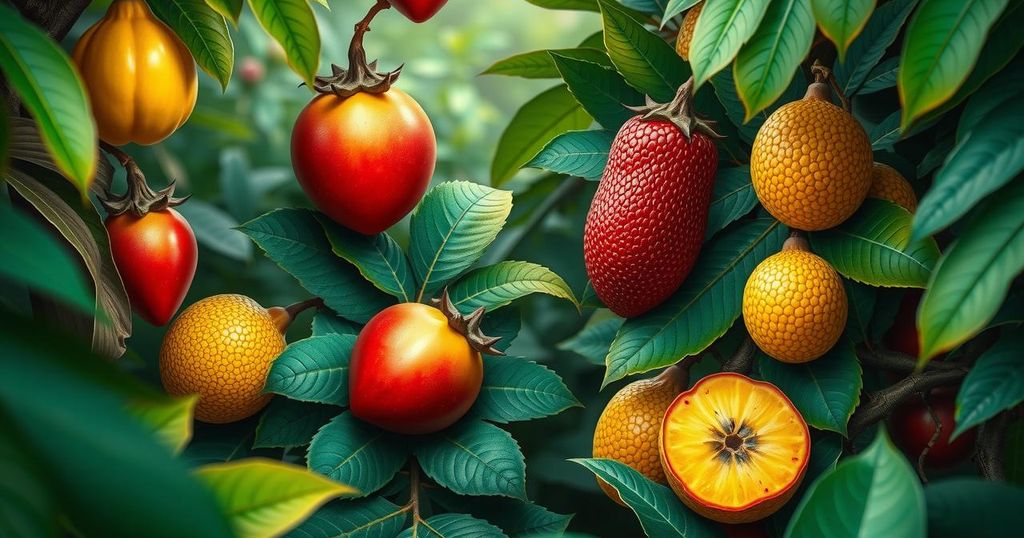Gian Paolo Daguer, known as Colombia’s “Lord of the Fruit,” utilizes social media to promote awareness and conservation of native fruit species at risk of extinction. Highlighting tropical fruits like lucuma and churumbelo, he emphasizes the dangers of a homogenized diet that disregards biodiversity. Collaborating with chefs, Daguer actively distributes seeds and encourages a community dedicated to preserving Colombia’s unique edible plant heritage.
In Bogotá, Gian Paolo Daguer, renowned as Colombia’s “Lord of the Fruit,” passionately advocates for the preservation of native fruit species through social media. As an environmental engineer, he aims to educate his thousands of followers about the unique flavors and uses of climes rare to Colombian culture. Among his numerous video presentations, Daguer highlights the lucuma, a fruit often overshadowed by more common varieties like mango and papaya.
The lucuma is characterized by its coconut-like exterior and avocado-like flesh. Daguer describes it saying, “It is a fruit that is not very juicy… Nevertheless, it has a strong caramel-like flavor.” Concerned about the decline of lesser-known local fruits, Daguer sheds light on the risk of extinction these species face amid a globalized diet increasingly favoring staple fruits.
Biologist Carolina Castellanos emphasizes the danger of this trend, stating, “As our diet becomes more homogenized… these (native) species are taking a back seat,” indicating that reduced consumption leads to diminished cultivation efforts. Many of Colombia’s 3,000 edible plant species are threatened, with significant forest loss occurring due to agricultural expansion for coca production.
Daguer actively engages his audience by sending out seeds for fruit trees through his “frutas_colombianas” channel, which boasts over 108,000 followers. He fosters a community where knowledge is shared among biologists, farmers, and chefs. His efforts have led to the cataloging of various rare fruits, including the quinguejo, highlighting the urgency of discovery before these species vanish.
Chef Antonuela Ariza collaborates with Daguer by incorporating rare fruits into her restaurant’s offerings, facilitating both education and conservation. She asserts, “What we do not eat is lost,” reinforcing the vital link between culinary practice and biodiversity conservation. Daguer concludes that nurturing ecosystems is crucial for recovery, urging that replanting is essential to preserve the rich varietal heritage Colombia holds.
Gian Paolo Daguer’s initiatives underscore the critical importance of preserving Colombia’s native fruits facing extinction. Through social media engagement and community collaboration, Daguer raises awareness about biodiversity, supports cultivation efforts, and promotes culinary exploration using these unique species. As cooperation between chefs, biologists, and the public increases, there is hope for the conservation and appreciation of Colombia’s ecological treasures.
Original Source: www.communitynewspapergroup.com




